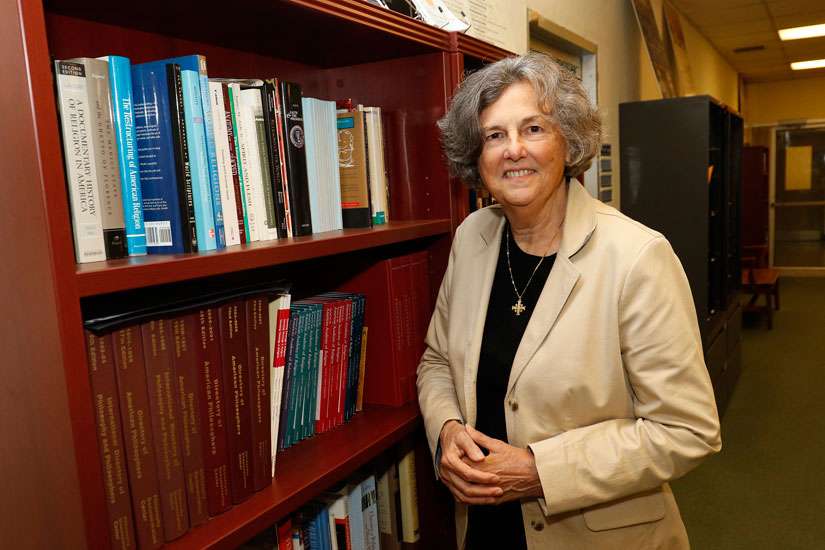And let’s hope the diverse group of six women and seven men can reach a consensus on whether women should be ordained deacons. It would sure be interesting to be a fly on the wall of any closed-door meetings with this commission made up of progressives, conservatives and moderates. One thing is certain after reading through the bios of all the members of the panel: they are all highly qualified experts to offer counsel on this matter.
For some reason, much of the right-wing of the Church has drawn a line in the sand when it comes to this expansion of the role of women. In May, after the Pope initially mused about studying whether women could be ordained deacons, this column applauded the move. And the vitriolic attack against that point of view was comical. One closed-minded fellow had the temerity of e-mailing and calling me a heretic, among other things, for simply agreeing the matter warranted study.
Holding different opinions is all well and good, but immediately going on the attack with personal insults and refusing to debate thoughtfully is altogether something different. I’ve already seen similar nasty and un-Christian things in the blogosphere since the Pope named the panel members.
This blue-ribbon panel of scholars and intellectuals will likely not resort to such childish name-calling, but will individual positions shift to reach a consensus? Will one side of the argument hijack the proceedings and move from filibuster to filibuster so that that nothing really changes and nothing reaches Pope Francis in a timely manner? Let’s hope not.
There are some strong-willed minds on both sides of the debate. For example, panel member Phyllis Zagano, a celebrated Catholic scholar who teaches at Hofstra University in New York, has long advocated the cause of women’s ordination as deacons. “There were women ordained as deacons in the early Church. That is a historical fact. What they did, where they did it and how they became deacons are all well-studied. The facts of history cannot be changed,” Zagano wrote in a column for National Catholic Reporter in May.
Italian Sister Mary Melone of the Franciscan Sisters of Blessed Angelina and rector of Rome’s Pontifical University Antonianum has also long championed expanding the role of women in the Church, according to the Catholic news site Crux.
The conservative side of the Church is well represented, too. For example, Fr. Robert Dodaro, another American and president of the Augustinianum University in Rome, is a well-known conservative. Last year, he edited a book, Remaining in the Truth of Christ, which features essays by five conservative cardinals and four scholars, including Dodaro, who push back on Pope Francis’ more pastoral and conciliatory approach to divorces, among other issues.
By way of background, the New Testament tells us the role of the deacon was created by the Apostles so they could deploy ministers or designates to do charitable works while they focused on preaching.
Over the centuries, the role of deacon was eventually subsumed into the priesthood and hierarchy. Then in the 1960s, the Second Vatican Council revived the diaconate as an ordained order open to “mature” men over 35, who can be married. Deacons can preach or preside over weddings and funerals but cannot celebrate Mass or hear confessions.
With the re-instalment of the diaconate, there’s long been an argument that women should be included because early Church sources mention women as deacons centuries ago and today many duties performed by nuns are comparable to deacons’ work.
There is a long way to go for this commission, but supporters of expanding the role of women in the Church are already delighted by the swiftness of the Pope’s actions.
American Jesuit priest James Martin, author and editor-at-large of America magazine, calls Francis’ decision “amazing” and tweeted that the ordination of women “was an historical reality that must be fully recovered. The significance of the possibility of women deacons cannot be underestimated. An ordained ministry for women in the Catholic Church.”
Is this commission the slippery slope, as traditionalists fear? Or is it a pathway to meaningful reform that will bring people back to the Church and revitalize those who never left? It’s too early to say, but the important thing is people are talking, debating and making their views known. “I can’t say what the commission will find; I don’t want to raise hopes one way or the other. I think the important thing is this is a discussion the whole Church should undertake, and it will,” Zagano told the Religion News Service.
Amen to that.
(Brehl is a writer in Port Credit, Ont., and can be reached at bob@abc2.ca or @bbrehl on Twitter.)

